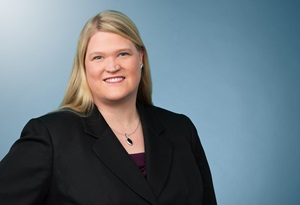Supreme Court Decides Missouri v. Frye
On March 21, 2012, the U.S. Supreme Court decided Missouri v. Frye, No. 10-444, holding that a defendant may assert a claim for ineffective assistance of counsel based on failure of counsel to notify the defendant of a favorable plea offer that lapsed—if the defendant can also show a reasonable probability that neither the prosecution nor the trial court would have prevented the acceptance and implementation of the plea.
In August 2007, Frye was charged with driving with a revoked license. Because of three prior convictions for the same offense, he was charged with a Class D felony that carries a maximum term of four years imprisonment. The prosecutor sent Frye's counsel a letter with two plea offers; one of the offers would have reduced the charge to a misdemeanor, which carries a maximum term of one-year imprisonment. Frye's counsel did not communicate the plea offers to his client, and they expired. One week before his preliminary hearing, Frye was arrested for driving yet another time with a revoked license. He ultimately pled guilty without a plea agreement to the August 2007 offense and was sentenced to three years in prison. In post-conviction proceedings, he argued that his attorney's failure to communicate the plea offers denied him effective assistance of counsel because he would have pled guilty to the misdemeanor. The Missouri Court of Appeals determined that Frye met the requirements for showing a Sixth Amendment violation under Strickland v. Washington, 466 U.S. 668 (1984). The court deemed the plea withdrawn and remanded.
The Supreme Court vacated and remanded, holding that "plea bargains have become so central to the administration of the criminal justice system" that defense counsel must meet certain responsibilities "to render the adequate assistance of counsel that the Sixth Amendment requires in the criminal process at critical stages." Specifically, "defense counsel has the duty to communicate formal offers from the prosecution to accept a plea on terms and conditions that may be favorable to the accused." Under Strickland, to establish ineffective assistance of counsel, a defendant who does not receive notice of a favorable plea offer must also show prejudice by demonstrating (1) a reasonable probability that the earlier plea offer would have been accepted if the defendant had had effective assistance of counsel, and (2) a reasonable probability that neither the prosecutor nor the court would have prevented the entry of the plea.
In applying those standards to Frye's circumstances, the Court found it uncertain that Frye could show prejudice and remanded for further consideration of that issue. Because of Frye's fifth charge of driving without a license, which occurred between the time the plea offers were extended and the date of the preliminary hearing, the Court found reason to doubt that the favorable plea would have been entered.
Justice Kennedy delivered the opinion of the Court, in which Justices Ginsburg, Breyer, Sotomayor, and Kagan joined. Justice Scalia filed a dissenting opinion, in which Chief Justice Roberts and Justices Thomas and Alito joined.


